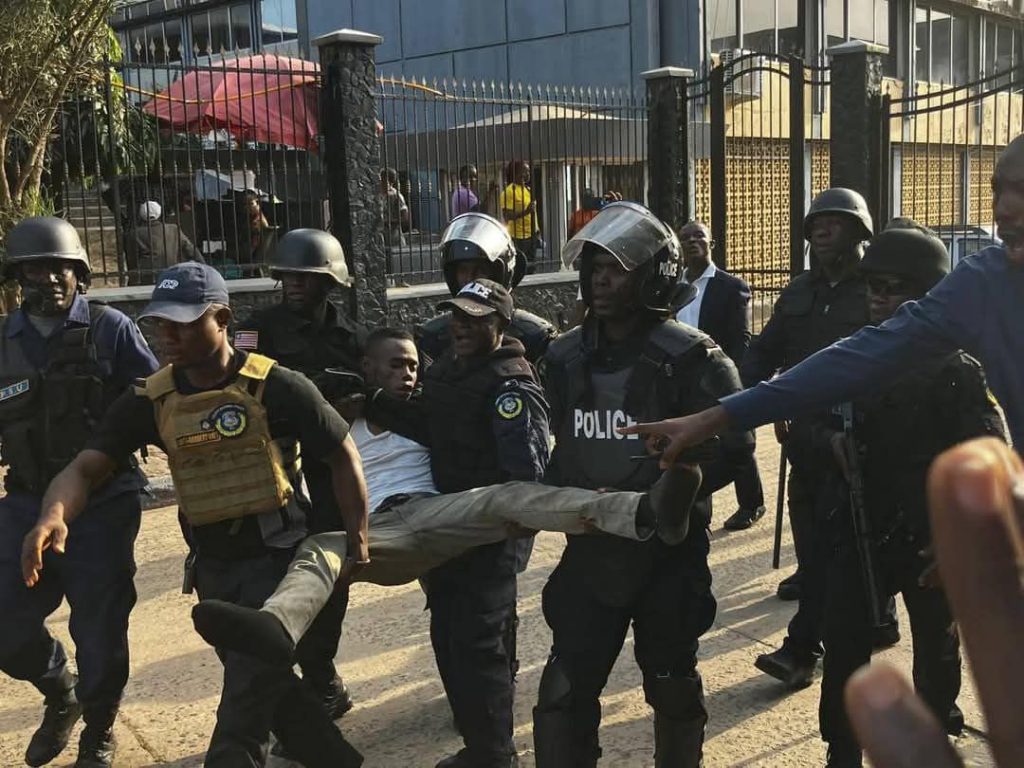The legal representatives of former House Speaker Jonathan Fonati Koffa and his co-defendants, accused of arson and other crimes related to the Capitol Building incident, have vehemently rejected a court-ordered medical examination at the government-run John F. Kennedy Medical Hospital. They argue that their clients’ safety and well-being are at severe risk due to alleged torture and abuse suffered at the hands of state security agents, specifically the National Security Agency (NSA) and the Liberia National Police (LNP). The defense team contends that an independent medical evaluation is crucial, fearing that the defendants’ deteriorating health conditions, including urinary tract infections and blurred vision, could escalate and potentially lead to fatalities if entrusted to a government-affiliated institution.
The defense team’s motion for an independent medical examination stems from Judge Roosevelt Z. Willie’s proposal for a checkup at JFK Hospital to ascertain the validity of the defendants’ claims of sodomy, torture, and other medical complications. While acknowledging the court’s intention, the defense expressed their preference for an independent assessment, emphasizing their lack of trust in government-related agencies given the alleged abuses. They argue that the potential for biased or compromised results is too high, given the government’s role in the prosecution of the case.
The defense’s motion highlights the alleged severity of the torture inflicted upon the defendants. They describe excruciating pain during urination, the presence of blood in their urine, and blurred vision resulting from bright lights flashed in their faces during interrogation. These symptoms, they argue, are direct consequences of the beatings and waterboarding allegedly endured at the hands of NSA and LNP agents. The defense maintains that these actions represent egregious violations of their clients’ fundamental human rights as guaranteed by the Liberian Constitution.
The crux of the defense’s argument rests on the potential for a conflict of interest. Given the government’s involvement in both the prosecution of the case and the operation of JFK Hospital, the defense contends that an independent examination is the only way to guarantee an impartial and accurate assessment of the defendants’ injuries. They assert that relying on a government-run hospital for medical evaluation in a case against the government creates an inherent bias that jeopardizes the defendants’ right to a fair trial and due process.
Furthermore, the defense claims their clients are unfit for continued pretrial detention due to their deteriorating health conditions. They point to visible bruises and scars as further evidence of the alleged torture, arguing that these physical manifestations underscore the urgent need for independent medical attention. They stress that denying this request would not only exacerbate their clients’ existing medical issues but also potentially put their lives at risk.
The defense’s motion for an independent medical examination represents a critical juncture in the legal proceedings. It raises serious concerns about the alleged human rights violations and the potential for biased medical assessments within a government-controlled healthcare system. The court’s decision on this motion will have significant implications for the defendants’ well-being and the fairness of their trial. It will also set a precedent for future cases involving allegations of torture and the need for independent medical evaluations in Liberia’s legal system.














